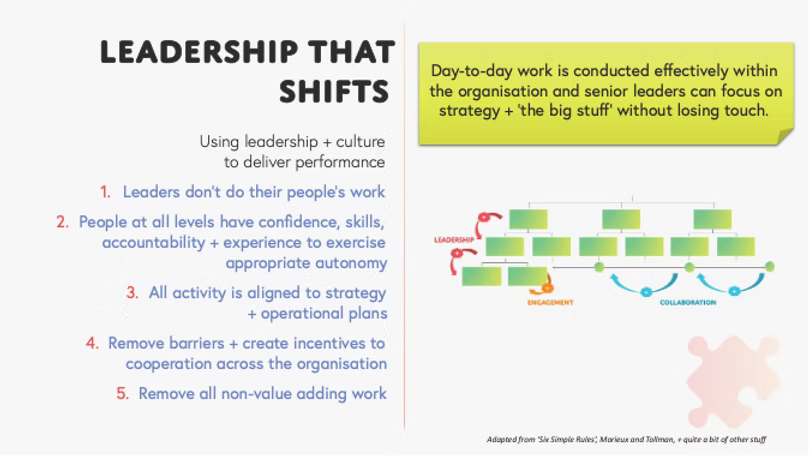People are not your greatest asset
Ask nearly anyone in any organisation (especially the C suite) and they’ll say something like ‘our people are our greatest asset’. But as an organisation, are you actually behaving like they are? Easy to say. Not so easy to demonstrate.
It's common for organisations to make a declaration about how much they value their employees, but there can be a disconnect between this statement and what is actually happening (practices, processes + behaviours). When organisations treat their employees in ways that are not consistent with this statement, then employee trust, morale, + motivation can take a dip, impacting overall business metrics.
Misaligned practices like cutting benefits, failing to invest in training and development, or not providing fair compensation, send the message that ‘actually, employees aren’t really valued here’. Interesting. And funnily enough, this negatively impacts employee engagement, productivity, and retention. These are some of the obvious low-hanging fruits of organizational behaviour to stick under the heading ‘Don’t Ever’.
But there are plenty of less obvious examples.
Employees bring a variety of skills, experience, and perspectives to an organisation and can contribute significantly to its success. Your frontline teams know your customers, your products, + your processes better than anyone. Properly empowered, they can play a key role in driving innovation + adapting to change, as well as building a strong culture.
Are you creating an environment where this wealth of capability can be deployed + your people can really shine?
Are you giving them the autonomy to make decisions + take ownership of their work and trusting them to do their jobs without micromanaging every little detail? When people feel empowered, they're more likely to take risks, think outside the box, and come up with innovative solutions.
Do people understand what’s valuable + rewarded?
Are they clear on how their work contributes to the bigger picture, supports the Strategy + aligns to Purpose? Do they even know what the Purpose is?
Are they weighed down with unnecessary bureaucracy, duplication and waste that dims their shine beyond recognition?
In short, are you doing this (or something very like it)?
Because, if you’re not, you don’t think your people are your best asset.


